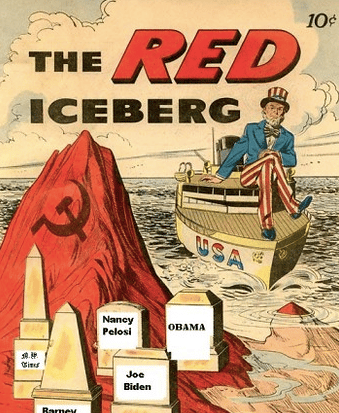On matters of global security, the most important relationship in the world is between the United States and Russia. Mutual respect and cooperation between them are necessary for de-escalating tensions in Eastern Europe, restoring equanimity to the Middle East, counterbalancing growing power in Asia, and instituting strategic arms control agreements on nuclear weapons.
Unfortunately, these critical issues have been sidelined in favor of distrust and hostility.
From America’s revolution to Russia’s revolution, the two nations enjoyed amicable relations with no contravening interests. The United States’ twentieth century Cold War with the Soviet Union was an ideological conflict, not a national one. The threat was always the idea of a monolithic communist superpower, dominating the globe from Central America to Central Africa to Central Asia. When the Soviet Union dissolved, so should have animosities.
However, U.S. policymakers chose hubris and hegemony over humility and realism. Years after the Warsaw Pact was disbanded and the Red Army demobilized, NATO was expanded to Russia’s doorstep. Instead of being respected as a significant power in its own right, Russia was disregarded as the Cold War’s loser. The United States sowed seeds of discord and has reaped the whirlwind.
Now Vladimir Putin has ruled Russia for two decades. Through obstinacy in the face of American demands and a prudent expenditure of smart power overseas, Putin has returned his country to what he sees as an appropriate stature on the international stage.
Meanwhile, American power has diminished as the country overextended itself in an ill-fated attempt at global predominance. To forestall further calamity, American officials must relearn the give-and-take of geopolitics, and that means negotiating with Vladimir Putin. The Russian president may strong arm domestic opposition and flout democratic norms, but in foreign affairs he’s been clear-eyed and predictable. If Presidents Franklin Roosevelt and Richard Nixon could shake hands with Joseph Stalin and Mao Zedong, the bloodiest butchers of the past century, then modern leaders can sit down with an old-style Russian nationalist like Putin.
Repairing damaged relations means first, both countries must forswear all future interference in each other’s elections. Accusations of Russian interference in the 2016 U.S. presidential election have become a cancer on the body politic of America. A political system where all challenges to the status quo are labeled as suspect, where outsider candidates are labeled as “Russian agents,” is not a healthy one. Overreaction to interference has done more damage to domestic dialogue than Russian Facebook ads ever could.
Secondly, the United States must develop a more prudent assessment of its national interests, with more focus on the physical nation and less on global policing. For forty-five years of Cold War, American presidents from Truman to Reagan realized that while the Soviets must never be allowed to cross the Elbe River, events in Eastern Europe did not concern the security of the American people. With the current threat of a Russian military invasion of its western neighbors dubious at best, their appraisal of the situation stands.
A new referendum in Crimea ought to be held (with international observers present) to decide the political future of the peninsula. Warfare in Eastern Ukraine must end with promises of autonomy for culturally Russian regions. NATO must end all attempts to bring Ukraine or Georgia into its military alliance.
In exchange, Russia must recognize forthwith the United States’ sphere of influence in the Americas. Russia’s security is not benefitted by stationing soldiers in Nicholas Maduro’s Venezuela, or giving encouragement to the Cuban regime. Their purpose is only to spit in the eye of Uncle Sam. An adjustment of relations would correct this.
Going forward, the United States must reassess the priorities of its military budget and redesign it to fit the new, technological age. Military strength won’t be measured in tank battles in Poland, but in cyber capabilities. Russia has pursued this as cheaper, farther-reaching alternative to traditional hardware, and the U.S. should follow suit. The dynamics of cyberwarfare, where it’s easier to attack than defend, indicate that a policy of mutually assured destruction can sufficiently keep war an idea too costly to contemplate.
Outside of outmoded institutions and ideological rigidity, there are more areas of compatibility between American and Russian interests than not. This includes a long-sought final settlement in the Syrian Civil War, mutual pressure on North Korea during diplomatic summits, and cooperation in counter-terror actions.
By readopting the principles of realism and restraint, the United States can rejuvenate its foreign relations with Russia and improve security the world over.

































